Even before Cabrini Interim President Helen Drinan alerted the community to the school’s dire financial situation, behind-the-scenes ramifications began rumbling. Dr. Marilyn Johnson and Dr. James Hedtke claimed Drinan denied them promised retirement benefits they negotiated with Cabrini’s former president, Donald Taylor.
According to Johnson and Hedtke, other faculty, and their friends, the pair have sought legal counsel in the matter.
Private negotiations
While Johnson and Hedtke declined to detail the negotiated deals, Drinan described the deals as unfair. “I’m not continuing an unfair practice, nor am I in a position to make that funding given our financial situation,” she said.
These compensation deals for retirement should not be confused with Cabrini’s longstanding 403(b) contribution retirement plan. In the plan, the school donates 4% of an employee’s base annual salary and matches up to 3% of the employee’s contribution. Drinan explained that people can put in as much money as they like up to Internal Revenue Service limits, or nothing at all, while still receiving Cabrini’s contributions.
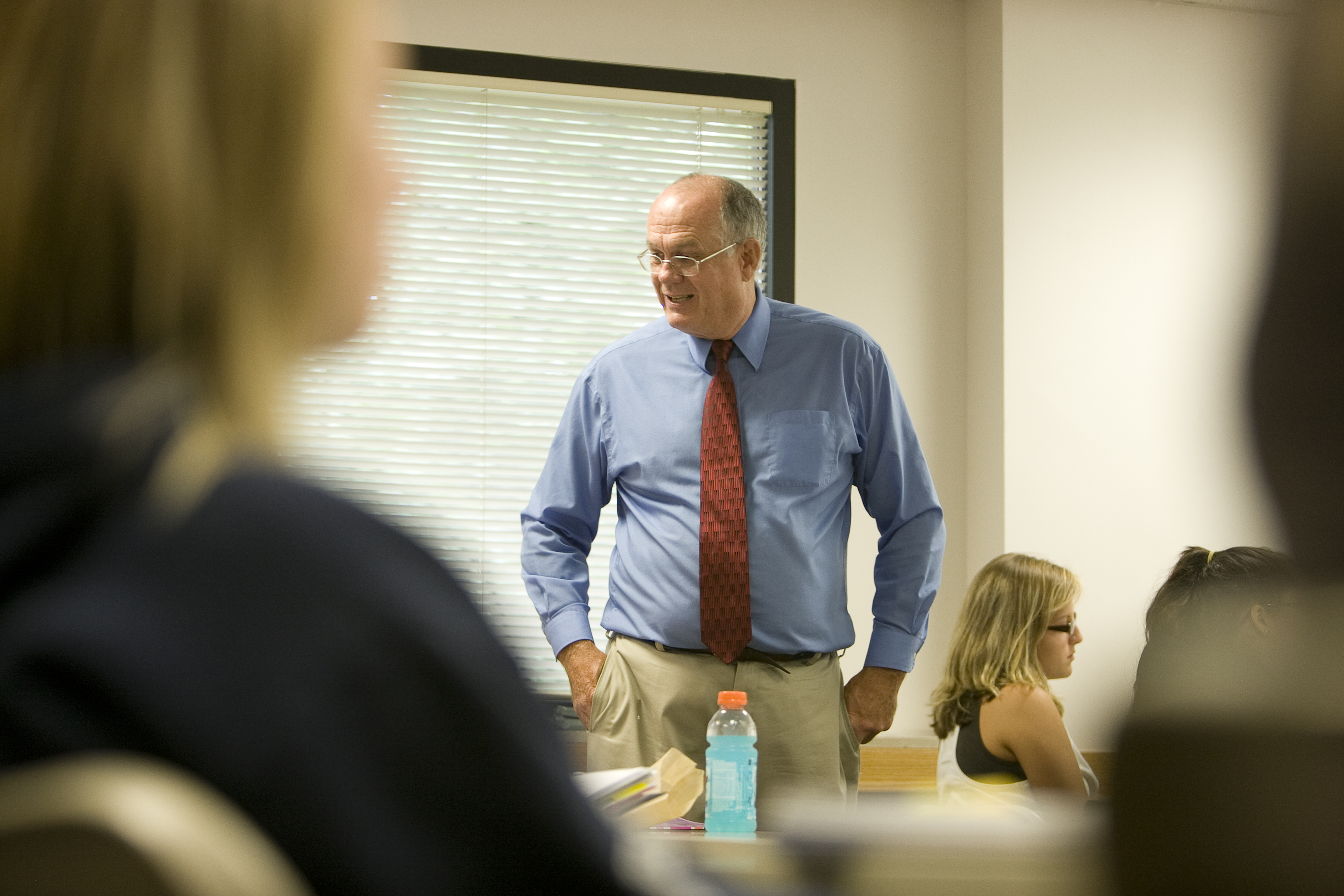
She said, under previous administrations, “When certain members of the faculty were about to retire, some of them asked for extra compensation, and some were given it. Some were given more than a year of severance. Some were given less than a year of severance, some were given a year of severance.”
She further explained that other faculty members have not equally received these sums, and staff weren’t even considered for deals the faculty received. Drinan said, “We have not honored such requests from everybody. And we have also not offered such things to everybody.”
Sources say Hedtke and Johnson received the same deal as previous senior faculty who retired. Part of that deal included a year’s salary.
Dr. Jerry Zurek, an English and communications professor who retired in 2021, took one of these deals, referred to as a voluntary separation agreement. “If you worked 25 years, you’d get a paycheck every two weeks for a year. I worked 50 years, but I didn’t get any more than if I’d worked 25 years. It was capped at one year max of pay,” Zurek said.
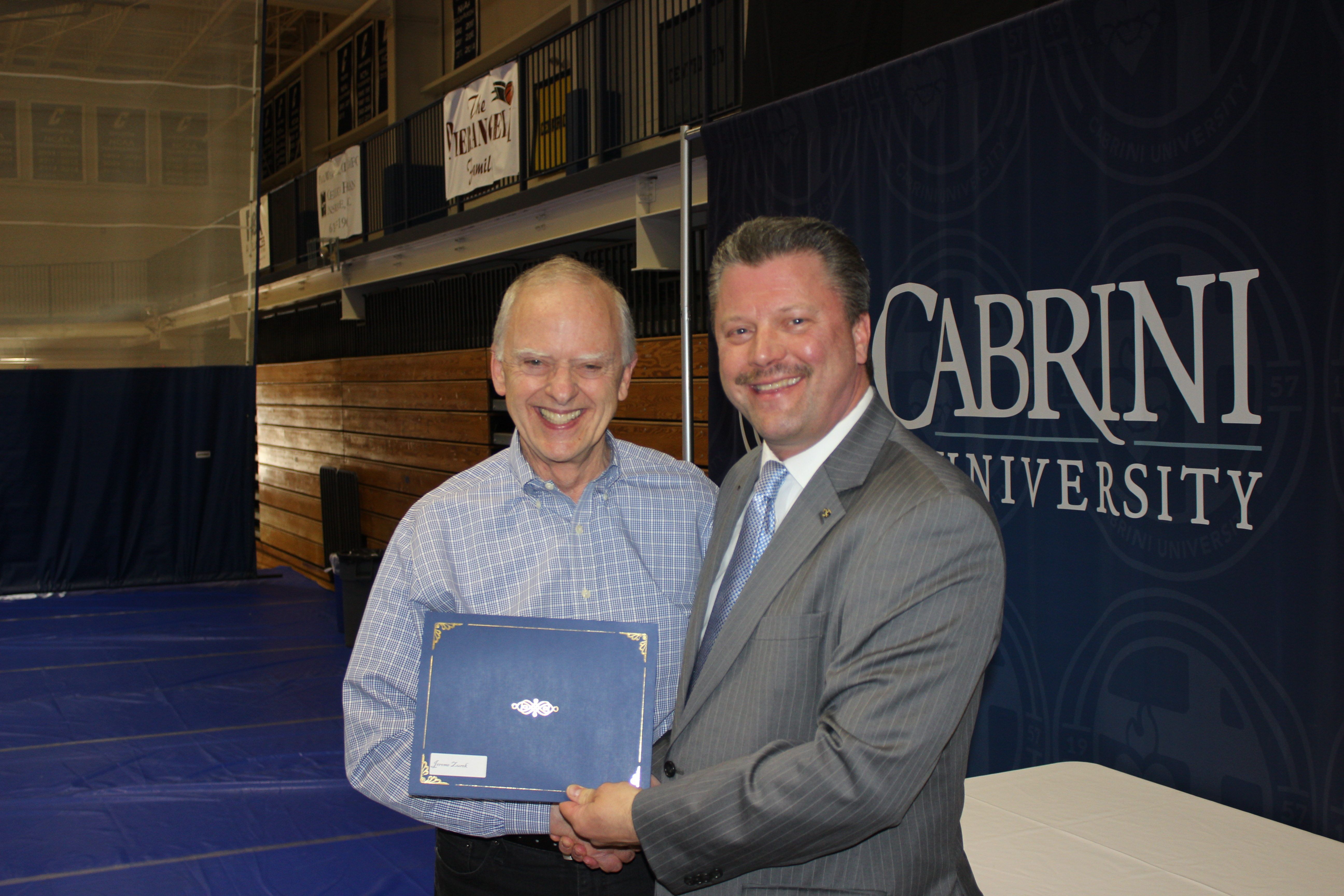
According to Zurek, in 2020, faculty were told that in the 2021-22 academic year, those who accepted the agreement would receive, “two weeks of base salary for each year of service, $2,000 for or in lieu of health insurance, $2,000 for or in lieu of outplacement services, tuition benefits for four years, lifetime use of Cabrini facilities, including the Dixon Center and the library, and retention of employee’s Cabrini email address and e-mail account.” He said several staff members and some faculty took the deal.
Lawful pitchforks raised
Johnson, professor in the writing and narrative arts department, started at Cabrini in 1966. She is one of its longest-serving professors. On the advice of counsel, she did not wish to comment on her case. However, she said she does not understand Drinan’s reasoning on packages being given out unevenly when retired senior faculty members have received evenly distributed ones.
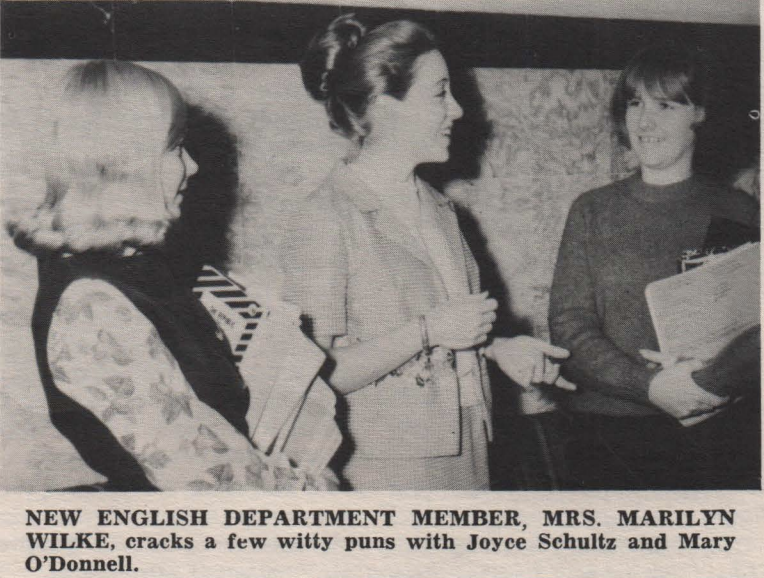
Hedtke began his tenure at Cabrini as an educator in the history and political science department in 1973. On the advice of his counsel, he also offered no comment.
Jamie Prince, alumna, donor, and previous student of Hedtke’s, believes he deserves to have his contract honored by Drinan.
“I think he is a remarkable academic, and truly one of the best human beings I have ever had the privilege to know. And I consider him a friend. It really upsets me to see him treated unfairly, and not to be rewarded for his just outstanding service to the Cabrini community.”
Prince is one Hedtke’s many allies. She started a small social media campaign on Twitter and Facebook to rally support from other alumni. The university has not budged.
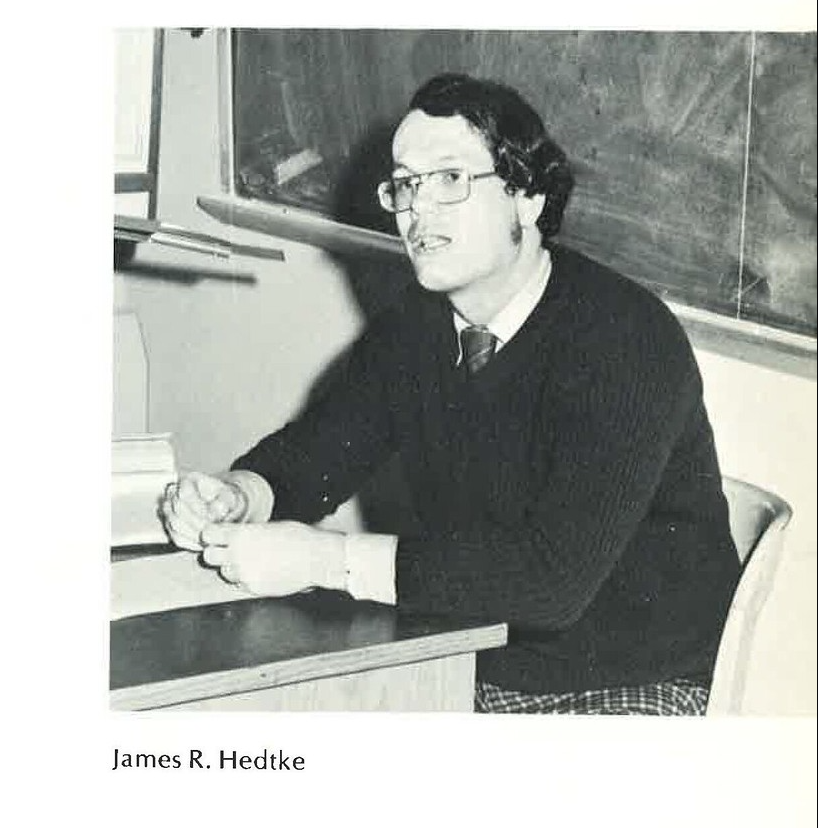
“If you look at it per year of service, it’s a very token amount. It’s not enough money for the administration to be making such a bad decision … all the talk of social justice seems rather hypocritical.”
Prince said Hedtke came to her for advice when he found out about the broken deal. She said that after reviewing the details with her husband, they believed he had a solid case against the university. Prince said she and her husband were close to starting a GoFundMe page to help cover Hedtke’s legal fees.
Drinan’s firm stance
Hedtke and Johnson both discussed their frustrations during Faculty Assembly meetings. Dr. Paul Wright, English professor and Faculty Assembly chair, said, “They have raised their concerns about retirement incentives they were promised by Donald Taylor, and those were incentives to retire sooner. Some faculty have had that opportunity in the past.”
Drinan holds firm, explaining, “While we face a $5 to $6 million deficit, and we have laid off people and we will probably have to lay off more people, how do I justify giving someone who’s been here with a full retirement program, provided by Cabrini, another year of pay?”
“I am being asked to give two amounts of money to faculty that I did not agree to, and that I’m not required to agree to,” Drinan said.
No other universities or colleges participate in these types of deals, according to Drinan, and she reiterated that she remains on the side of equal treatment. “If anybody is going to get this kind of money, then theoretically, everybody should be able to get this kind of money. And that has not been the case.”
What now?
The dispute is tangled in competing truths. Hedtke and Johnson are part of Cabrini’s legacy and have taught more than half a century alongside retirees who received similar benefits. Drinan, as interim president, came to fix Cabrini’s finances and ensure its future prosperity.
Hedtke and Johnson are both tenured professors with doctoral degrees who earn far more than the average adjunct professor. In 2009 alone, (the most recent figure available online) Hedtke was paid $124,735.
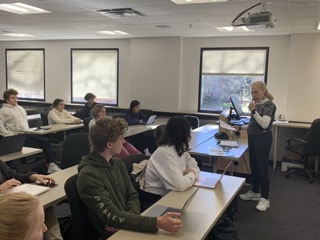
Honoring the contracts made by Taylor and having Hedtke and Johnson both retire sooner could generate more savings; new professors would make less salary. But Cabrini is in financial trouble, and, as Drinan said, “is simply not in the position to make additional funding available to people who already have retirement programs. This is not their retirement program. This is extra compensation.”
Prince disagreed. “If a contract has already been drawn up, she has a legal obligation to honor it. And a moral one as well.” As a longtime donor to Cabrini, she says she will now only donate to the history and political science department or any future fund to honor Hedtke.
“I think it’s very demoralizing for both of them,” Prince said.
Wright, in a statement on behalf of the faculty, said, “Our elected faculty leadership (the Faculty Cabinet) has no specific comment on the situation at this time given its very delicate nature, but we remain concerned that the institution should honor its arrangements made with faculty and employees at large. This is an important element of administration and workforce discussions and negotiations going forward in a time of crucial transition and restructuring for Cabrini.”
Donald Taylor was unavailable for comment.


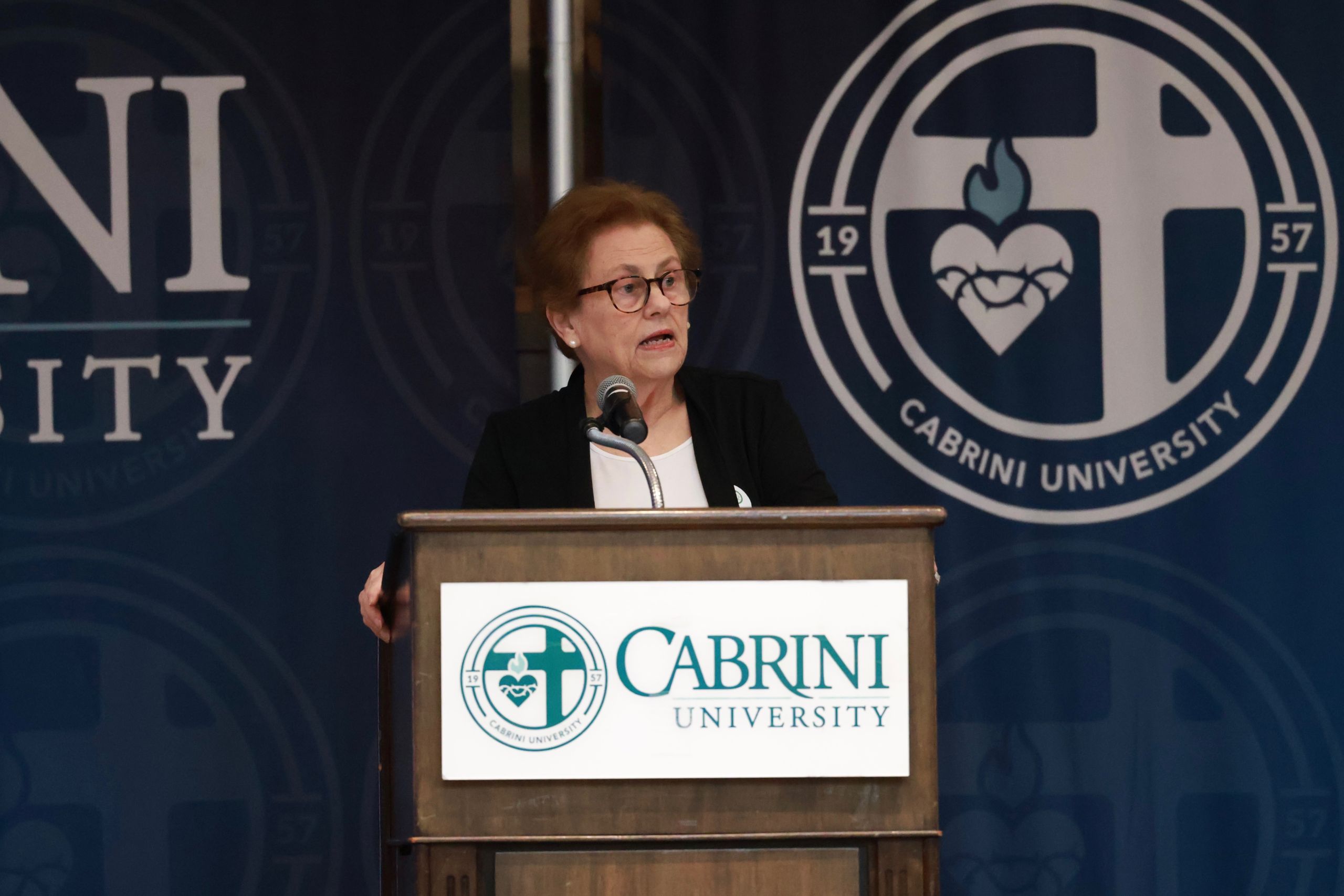






Cabrini University is not the only college in financial trouble. There are many. President Drinan has a tough job. The USA has a long history of workers in private companies ot getting the retirement compensation they expected. Even those in the public sector sometimes do not get what they expected. Money does not grow on trees.
i know both johnson and hedkte they are both very fine people…and it sad to think that this is what cabrini has become…..and the only people who will be getting money out of all this is of course…the lawyers……